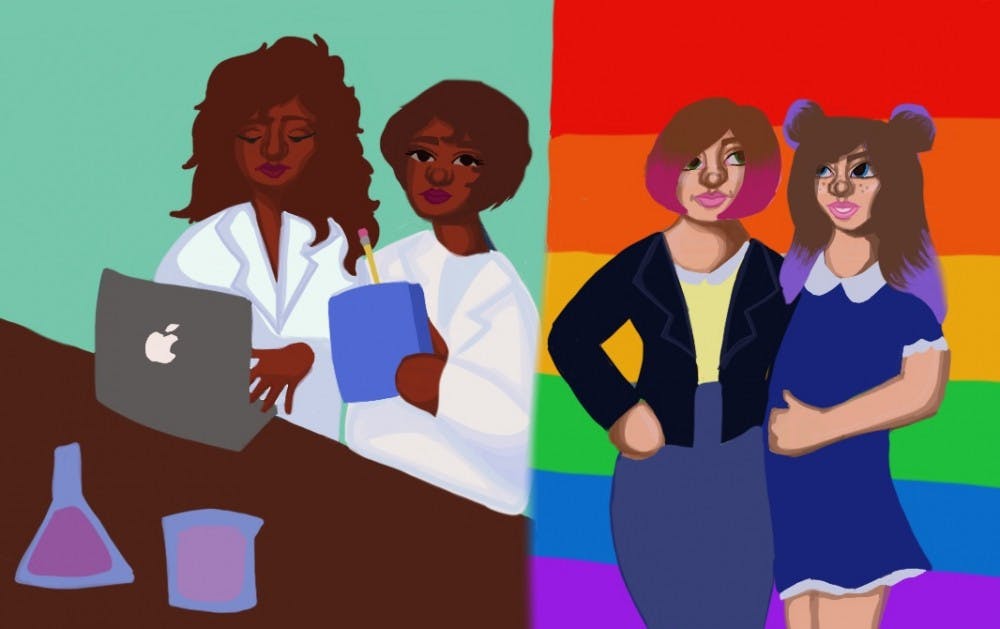Students of all SHADES and HUES now have access to mentorship and support from faculty and staff that resemble them and their unique identities.
ASU has implemented the SHADES and HUES mentoring programs in an effort to provide support to students of color, disadvantaged students and students who identify as part of the LGBT+ community.
The programs aim to promote the academic and personal success of mentees by offering connection and guidance through events like monthly mixers, professional events and one-on-one meetings.
SHADES serves graduate students seeking connection and support and HUES pairs a graduate or undergraduate LGBT+ student with an LGBT+ faculty/staff mentor.
Both programs have online applications where prospective mentees or mentors may apply.
Zachary Reeves-Blurton, program manager for the Graduate College and a graduate student studying leadership and innovation, said the HUES program is new and serves as his doctoral research project.
“HUES was launched as a pilot with about half a dozen mentors and mentees last fall, and this year I just expanded it to a larger population,” he said.
Meanwhile, SHADES has a longer history. It was created in 2002 by Sydella Blatch and initially focused on building connection among African-American women in STEM fields, which are largely dominated by men.
Read more: ASU works to break down gender and racial barriers in STEM
According to Sakena Young-Scaggs, a graduate teaching associate, graduate student in gender studies and mentor for SHADES, the program has evolved to include a broader scope of students.
“SHADES serves more than what we would consider in America ethnic or racial minorities,” she said. “I think the program goes way beyond that.”
Young-Scaggs said that in addition to serving ethnic minorities, SHADES is also open to economically and socially-challenged students in general. She said this often includes first-generation and international students.
Reeves-Blurton said the SHADES and HUES programs both aim to build resilience and community with mentees.
“A common theme I’ve noticed is that these are students who, in many ways, have felt very isolated and very lonely,” Reeves-Blurton said. “And through working with their mentors, they’ve developed not only somebody that is a role model, but somebody who can help them feel positive about their academic decisions.”
He said students who belong to minority populations often feel less connected to their University and academic programs, and that this lack of connection might explain why approximately 50 percent of doctoral students do not complete their degrees.
Reeves-Blurton said HUES is a unique program, even on the national level.
“There are actually fairly few universities that offer mentoring as a specific community-building support for LGBT+ students,” he said. “It's common at this point to have an LGBT+ resource center or program, but the specific mentoring component by LGBT+ identified faculty and staff is something that is relatively new.”
Sean Tingle, an English instructor and mentor for HUES, said he developed meaningful connections with his two mentees, even staying in contact with one after graduation.
“They've really appreciated that ASU has something like this,” he said. “It provides a sort of safe space for students to be themselves and connect with others.”
Tingle said he wishes he had a similar program throughout his education.
“It would've been nice to have a role model or mentor who I could relate to on a deeper level and who would understand my situation more closely than perhaps a heteronormative mentor might,” Tingle said. “They would probably be wonderful as well, but they wouldn't necessarily understand what I was going through personally.”
Reach the reporter at jkbeneve@asu.edu and follow @JacobBenevento on Twitter.
Like The State Press on Facebook and follow @statepress on Twitter.





